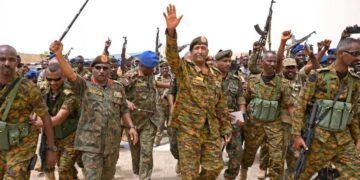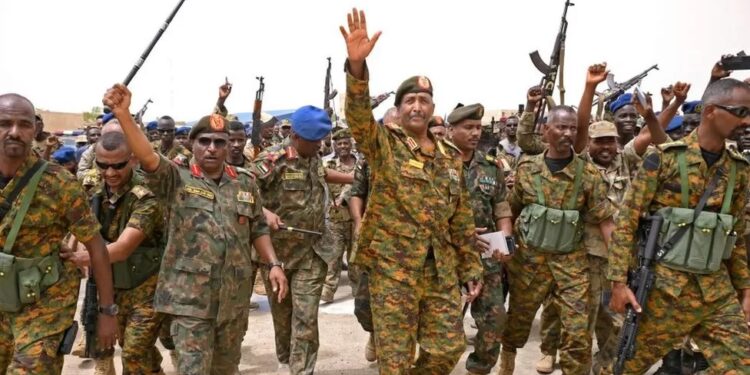By John Ikani
Two rebel factions hailing from Sudan’s strife-ridden Darfur region have declared their intent to align with the national army in the ongoing civil conflict.
The development follows significant territorial gains made by the paramilitary Rapid Support Forces (RSF) in Darfur, where allegations of ethnic cleansing have surfaced.
Gibril Ibrahim, a prominent rebel leader, conveyed to BBC Newsday that their decision to collaborate with the army “stems from a commitment to protect their civilian population from the RSF,” accusing the paramilitary group of “engaging in egregious acts such as burying people alive.”
According to Ibrahim, arriving at the decision was a laborious process that took seven months before an agreement could be reached.
The strained relationship between the Justice and Equality Movement (Jem) and the Sudanese army is underscored by personal tragedy, as Ibrahim’s brother, a former leader of the group, was killed by the army.
Jem and the Sudanese Liberation Movement (SLM) initiated armed resistance in Darfur in 2003, citing the government’s marginalization of the region’s black African communities.
The government’s response involved mobilizing Arab militias against the rebels, resulting in what has been labelled as the 21st Century’s inaugural genocide.
Over time, the militias coalesced into the RSF, engaged in an ongoing struggle for control with the national army since April. Recent RSF successes include capturing key towns in Darfur, notably Nyala, the country’s second-largest city.
Reports have emerged of alleged massacres in El Geneina, the capital of West Darfur, with the RSF attributing the violence to a “tribal conflict” and denying involvement.
In a joint statement, Jem and the SLM declared, “We have announced ending any neutrality and joining the military operations at all frontlines without hesitation.”
Expressing apprehension at the RSF’s territorial advances, Mr. Ibrahim voiced concerns over the potential division of Sudan, fearing the emergence of a separate government in the war-torn western region, already grappling with impoverishment.




































